- Home
- Robert J. Crane
Driven
Driven Read online
DRIVEN: OUT OF THE BOX 20
The Girl in the Box, Book 30
ROBERT J. CRANE
Ostiagard Press
DRIVEN
The Girl in the Box, Book 30
(Out of the Box 20)
Robert J. Crane
Copyright © 2018-9 Ostiagard Press
All Rights Reserved.
2nd Edition
This book is a work of fiction. Names, characters, places and incidents are products of the author’s imagination or are used fictitiously. Any resemblance to actual events or locales or persons, living or dead, is entirely coincidental.
The scanning, uploading and distribution of this book via the internet or any other means without the permission of the publisher is illegal and punishable by law. Please purchase only authorized electronic editions, and do not participate in or encourage electronic piracy of copyrighted materials. Your support of the author’s rights is appreciated.
No part of this publication may be reproduced in whole or in part without the written permission of the publisher. For information regarding permission, please email [email protected].
Created with Vellum
CONTENTS
Chapter 1
Chapter 2
Chapter 3
Chapter 4
Chapter 5
Chapter 6
Chapter 7
Chapter 8
Chapter 9
Chapter 10
Chapter 11
Chapter 12
Chapter 13
Chapter 14
Chapter 15
Chapter 16
Chapter 17
Chapter 18
Chapter 19
Chapter 20
Chapter 21
Chapter 22
Chapter 23
Chapter 24
Chapter 25
Chapter 26
Chapter 27
Chapter 28
Chapter 29
Chapter 30
Chapter 31
Chapter 32
Chapter 33
Chapter 34
Chapter 35
Chapter 36
Chapter 37
Chapter 38
Chapter 39
Epilogue
Teaser
Author's Note
Other Works by Robert J. Crane
Acknowledgments
CHAPTER ONE
Reed
“Hey, can I talk to you for a minute?” Angel Gutierrez hovered at my door. Normally cool and inscrutable, she now had a furtiveness about her that my long experience in law enforcement—and relationships—told me she was nervous.
“Have a seat,” I said, gesturing to the seat in front of my desk. Our new office facilities were not exactly top of the line. It seemed the word had gotten out that anyone who rented to us inevitably ended up needing to rebuild from the ground up. Thus our current offices: a two-story building on the far outskirts of Eden Prairie toward Bloomington, closer to the Cities, and suffering from a multitude of problems. The roof leaked when it rained, the pipes rattled like they were harbingers of Armageddon whenever someone flushed the toilet (not just Guy Friday, either), and the heater worked only about fifty percent of the time. I was still hoping this building would get nuked by our enemies before winter, since we hadn’t really gone through any desperately cold months here yet. I had a feeling the landlord had taken us on as tenants hoping much the same.
Boy, was the joke going to be on him when he found out insurance companies don’t pay out in the event of metahuman fault. But hey, he’d probably end up with a very nice parking lot/crater. One of those.
Angel shuffled into my office, her hands shoved deep in the pockets of her light leather coat. She looked around from behind her thin-frame glasses, still furtive, like she expected somebody to jump out of my credenza and attack her. With an easy motion—all Angel’s motions were easy, she was a reflex meta with the kind of muscle control that made Olympic gymnasts look like klutzes—she swung an arm back and closed my door, then turned back to face me, serious as a clown having a heart attack.
“What?” She looked like she was about to tell me my test results had come back with every fatal prognosis known to man. And I hadn’t even had any tests done. “Come on, Angel, the grim and gritty act is starting to worry me. I feel like I’m in a Frank Miller comic, especially with the rain.” I gestured to the window, where it was really coming down outside. Sideways, fortunately, which meant the roof wasn’t quite leaking—yet.
“You talked to Miranda in the last couple days?” Angel asked, smoky eyes honing in on me.
“No, why?” I looked at my door. In our old office, there’d been glass windows where I could look out over the bullpen and see into Miranda’s office. That office had been luxurious compared to this one. Even the walls were in bad shape, water spots all over them from previous leaks.
“She hasn’t been in for the last two days,” Angel said, and then twitched, looking around my office again. “You had this place swept lately?”
That got my attention. “Jamal does it every day,” I said, sitting up a little straighter in my chair. “You think Miranda’s in trouble?” I pulled out my phone and hit dial when I got to her contact. Angel waited patiently. Less than thirty seconds later I hit Miranda’s voice mail—which was full. “Huh,” I said. Miranda was way too organized to let her voicemail box fill up.
“It’s probably nothing,” Angel said nervously, eyes flitting away from me. “I just wanted to see if you’d heard anything.”
“You been by her place?” I asked, my brow carving its own furrowed line across the top of my head. Angel and Miranda were cousins, but I didn’t know how much they hung out off the clock.
“Not yet,” Angel said, and here she showed the first signs of real discomfort, adjusting herself in her chair. I mean, she took it up a notch. Subtly, though. Stuff only a trained eye would notice. “Called her a few times. No answer.”
“Uhm,” I said, trying not to let my imagination get wildly out of control. We’d just had a legal clash with a family that was hiding evidence of Sienna’s innocence and had framed Augustus and Jamal for a crime they hadn’t committed. Miranda had helped spring them, and the more conspiracy-oriented part of my mind immediately jumped to thinking that this was somehow related. She’d been Jamal and Augustus’s lawyer of record, after all—maybe she had been targeted for revenge?
“It’s probably nothing,” Angel said again, sitting up straighter in her seat.
“Yeah,” I said, trying to put on the brave face. Crazy dangerous stuff did tend to happen to us, but usually to us main-event people. Not the support staff, like Miranda.
Then again … that did seem to be where we were vulnerable.
“Maybe we should—” I started to say.
“Hey, could you have your sister … call me?” Angel asked, about as subtle as a jackhammer to the crotch.
“Sienna?” I asked, as though I had another sister. Suddenly I understood the reason Angel had asked about my office being swept for bugs.
“Yeah, no hurry or anything, just … mention I want to talk to her about something?” Angel looked as though I’d tossed her onto a hot plate shoeless, then stood, pulling at the bottom of her coat like she was Jean-Luc Picard. “No hurry,” she said again, and went for the door, “but, uh … yeah. Just let her know.”
I frowned. Had this Miranda thing all been some sort of smoke screen to get this request in? Or were they related? I was hopelessly confused now, but before I had a chance to ask a clarifying question or twelve, Angel hit the door. “I’ll, uh, see ya later. Just do that for me, will you?” And she was gone.
For a few minutes after she left, I just sat there, blinking. One of my employees might be missing, th
ough her cousin didn’t seem to be all that worried about it. On the other hand, she’d asked me to contact my fugitive sister for some reason …
“Well, at least the office isn’t blowing up,” I said under my breath, and then the first drip hit me from above. I sighed. Maybe the office being blown up wouldn’t be so bad after all.
CHAPTER TWO
Sienna
“Harry’s been acting like a little bitch all day,” I said, lazing upon the imaginary couch I’d conjured in this dreamwalk of mine. It was super comfy, an amalgam of the comfiest couches I’d been on in my life, all wrapped up together in one neat, super-cool couch package, and it made me wish, not for the first time, that I could construct the magical wonders of my imagination somewhere other than in my dreams. “All week, actually. Moody as hell.”
“That sucks,” Reed said. He’d been in my dreamwalk for all of five minutes and hadn’t relaxed yet. We did this at least once a week, and he’d gotten—I thought—pretty cool with our dreamwalk hang-time in the last few months. This seemed like a real step backward.
“Something up your ass, brother?” I asked, snuggling deeper into my couch.
“You been doing your sessions with Zollers lately?” he asked, sitting in a chair opposite me. It wasn’t as comfy as the couch, but it was still pretty awesome.
I looked over at him. “Well, yeah. Hence the design of the dream, I guess.” I pointed from my couch to his chair. “It’s like his old office, sorta, but with better furniture. It helps make me more comfortable when he and I talk.”
“That’s good,” Reed said, frowning. “So … Angel came to see me today.”
“The mysterious Angel,” I said, settling in for what I hoped would be a good yarn and better conversation than Reed had put forth thus far.
“Yeah,” Reed said, all afrown. “She mentioned that Miranda hadn’t checked in for a couple days.”
“They’re cousins, right?” I asked. I didn’t know Miranda very well, even though she was the person I’d hired to restart the agency that Reed now ran. I didn’t know Angel at all.
“Uh huh,” Reed said. “She seemed kinda cagey about it during the meeting. Asked me if my office was bugged—”
“Ooh. Intrigue.”
“—then wondered if I’d heard from Miranda. So I called her—straight to voicemail. Which was full.” He announced this last bit as definitively as if he were saying, “It was Colonel Mustard in the drawing room with the pipe.”
“A full voicemail box,” I said. “Such a threat you have never faced.”
“You don’t know Miranda,” Reed said, shaking his head. “She’s not the kind of person who lets her voicemail get full.”
“Maybe she met a nice guy and decided to get away for a couple days,” I said, trying to talk him off the stress ledge. He and his crew worked a dangerous job, no doubt, but office staff didn’t tend to get the pointy end of their trouble, at least not without good cause. “Maybe she’s got the flu. She’s human, right?”
“Far as I know,” he grudgingly allowed.
“They get sick sometimes, these normals,” I said with a smile. “Just another beautiful disadvantage we don’t have to deal with.”
Reed grunted. “Maybe. But that wasn’t the really weird part.”
“Oh, good,” I said, my bare feet pressed against the comfortable leather. “Because when you say something’s ‘weird,’ in your line of work, I know it’s gonna be some seriously oddball shit. And that means entertainment value.”
“She asked me to have you give her a call,” Reed said.
I lay completely still on the couch for a long minute. “Me?” He nodded. “Angel wants me to give her a call?” I looked around, as though there would be a studio audience laughing on cue instead of the endless darkness just beyond our small conversation area. “Me, a fugitive, on the run from the law, give this woman, who is a stranger to me, a call?”
“That’s what she asked for,” Reed said. “I got the feeling, though, that she maybe meant more like—” And he gestured at the darkness around us, suggesting a dreamwalk. “Something untraceable, you know.”
Oh, I knew. Unless the US government had more telepaths on their payroll, in which case I was probably pretty traceable. “And you have no idea why she wants to talk to me?”
Reed shook his head. “I don’t even know if the Miranda thing is part of it. She was playing pretty … strange, I guess? I’ve worked with Angel some. She’s cool as a cucumber. Today in my office, though? Quite the opposite.”
“Weird,” I said. “And now she’s asking you to put her in touch with someone whose mere presence in her life can result in a prison sentence. That’s a pretty big ask.”
“Tell me about it,” Reed said with a thin smile. “It’s why I try and keep as far away from you as possible.”
“Dick,” I said, conjuring an imaginary bowl of popcorn just so I could throw a handful at him.
He ducked away from it good naturedly. “In all seriousness, though … “
“Yeah, yeah,” I said, taking a bit of the popcorn. It was buttery and wonderful, and because we were in my dreams, calorie free. “I guess I’ll give her a call—you know, tomorrow night.” I shrugged. “I hope it’s not urgent.”
“If it was, you’d think she’d ask for my help,” Reed said. “After all, I do run an agency of superpowered metas.”
“True. But we all know that when the shit really hits the fan, there’s only one call you make—and it ain’t to the Ghostbusters,” I said, and he rolled his eyes at my egotistical little jab. “Now … what do you want to do? Talk? Watch a movie—”
“You suck at remembering movies for this. Remember the time we tried to watch Casablanca, and you scrambled the lines so badly that Ingrid Bergman ended up saying that the problems of two people didn’t amount to a molehill in this world, kid?”
“That’s an honest mistake.”
“It’s Humphrey Bogart who was supposed to say it—and your Humphrey Bogart did not look like Humphrey Bogart. He looked like a male Lauren Bacall—”
“Another honest mistake. You know, married couples supposedly start to look like each other after a while—”
“And the line was, ‘The problems of three little people don’t amount to a hill of beans in this crazy world.’ Also, ‘Here’s looking at you, kid.’”
“What did my version say?”
“‘Let’s try for two kids.’”
“Okay, that’s … probably not exactly what he said …”
“I feel like even MST3K-ing your dream movies would be a fail. You know that whenever you start laughing, the movie stops?”
“Okay, I get it,” I said, throwing up my hands in surrender. “You don’t like the Sienna Dreamwalk Moviegoing Experience. Feedback accepted.” I shifted uncomfortably on my couch. “Wanna play laser tag?”
He thought about it for a second. “Yeah. That’s always a good time.”
“Cool.” The couch vanished as I jumped to my feet. “Let’s do this thing.” And I put any thought of Angel out of my mind for the rest of the night.
CHAPTER THREE
Angel popped back into my brain the next day.
I was sitting in a cafe in Sioux Falls, South Dakota, where I’d established my temporary home for the last couple months. It was hardly perfect, but it wasn’t a bad place to spend the summer, as these things went. It was early June, and the temperature hadn’t started to spike into the eighties just yet.
My coffee was starting to get a little stale at the bottom of my cup, but the waitress seemed to be avoiding my table as though some sort of rotting animal carcass were parked in the seat across from me. But there wasn’t one. Just Harry Graves, my boyfriend, though if he turned any more silent and sour, he might be mistaken for one.
“So … are we pretty much done with the conversational portion of our relationship?” I asked, looking at him as he stared into the bottom of his coffee cup. I didn’t know if it was empty or full, but he seemed
a hell of a lot more interested in it than in me.
Harry didn’t look up. It had been like this for a week, and I was just about over it. We’d had a good run these last few months, probably getting close in terms of “Longest Sienna Relationship Ever,” but man … it was definitely starting to reach its sell-by date now.
“Okay, then,” I said, and drained the last of my stale mocha, looking around for the waitress, who was across the restaurant, literally as far from us as she could be without hiding in the back alley. Which I suspected she might do soon. “I’ll just finish up here and we can head back to the apartment and sulk at each other for the rest of the d—”
“You know what I miss?” Harry stirred, but still looked at his coffee. “Being so long-lived and all?”
This was the most he’d said in a week. Hell yeah, I was interested. “What?”
“There was a time when, societally, we embraced stoicism,” Harry said, and as he looked up at me, his eyes were tired. “You didn’t confide in anyone but your most intimate friends and your spouse. We had a sense of shame, you know? That’s all gone now, swept away in the tide of social media. Now you’ve got strangers telling you sordid details of their intimate lives, of their emotions, things you wouldn’t want to know even if they paid you to be their shrink. Back in my day, people just didn’t do that. Now it’s like all of society embraces this emotional incontinence, like no one sees any virtue in holding their bladder of feelings. Now it’s cool to just piss it all over everyone, whether they want it or not. ‘Oh, I’m just being real,’ they say, like there’s some virtue is showing the world your butthurt. Well, I miss the sense of pride we used to have, and I really miss its opposite—shame. Where you might have absolutely every damned thing go wrong in your life, but you were going to make it look like everything was still going all right. The men of the World War II generation, they could lose a damned arm, and they’d smile at you and wave with the other one—’How you doing, Maurice?’ ‘I’m doing just fine, Harry. Hanging in there.’ Bleeding all over the place, but smiling at you until you turned away to give him some privacy to show his pain.” He thumped the table lightly. “By God, I miss those times.”

 The Girl in the Box Series, Books 1-3: Alone, Untouched and Soulless
The Girl in the Box Series, Books 1-3: Alone, Untouched and Soulless Alone: The Girl in the Box, Book 1
Alone: The Girl in the Box, Book 1 Lies in the Dark
Lies in the Dark Cold
Cold The Gang of Legend
The Gang of Legend Control: Out of the Box (The Girl in the Box Book 38)
Control: Out of the Box (The Girl in the Box Book 38) Someone Should Save Her
Someone Should Save Her Ghosts of Sanctuary
Ghosts of Sanctuary Flashback (Out of the Box Book 23)
Flashback (Out of the Box Book 23)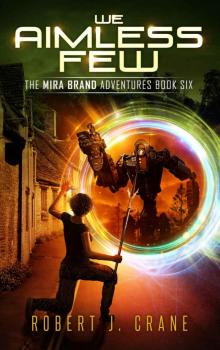 We Aimless Few
We Aimless Few No One Will Believe You
No One Will Believe You The King of the Skies
The King of the Skies Apex
Apex Dragon: Out of the Box (The Girl in the Box Book 37)
Dragon: Out of the Box (The Girl in the Box Book 37) Call of the Hero
Call of the Hero Blood Ties
Blood Ties A Home in the Hills
A Home in the Hills Heir of the Dog (Liars and Vampires Book 6)
Heir of the Dog (Liars and Vampires Book 6) Driven
Driven Second Guess (The Girl in the Box Book 39)
Second Guess (The Girl in the Box Book 39) A Respite From Storms
A Respite From Storms Painkiller
Painkiller Music: Out of the Box 26 (The Girl in the Box Book 36)
Music: Out of the Box 26 (The Girl in the Box Book 36) Untouched tgitb-2
Untouched tgitb-2 Unyielding (Out of the Box Book 11)
Unyielding (Out of the Box Book 11) The Girl in the Box 02 - Untouched
The Girl in the Box 02 - Untouched The Sanctuary Series: Volume 02 - Avenger
The Sanctuary Series: Volume 02 - Avenger Soulless tgitb-3
Soulless tgitb-3 Hunters (Out of the Box Book 15)
Hunters (Out of the Box Book 15) Toxicity (Out of the Box Book 13)
Toxicity (Out of the Box Book 13) Ruthless (Out of the Box Book 3)
Ruthless (Out of the Box Book 3) Thy Father's Shadow (Book 4.5)
Thy Father's Shadow (Book 4.5) Power
Power Alone tgitb-1
Alone tgitb-1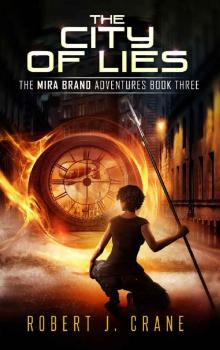 The City of Lies (The Mira Brand Adventures Book 3)
The City of Lies (The Mira Brand Adventures Book 3) A Haven in Ash
A Haven in Ash Family
Family Sanctuary Tales (Book 1)
Sanctuary Tales (Book 1) Hero
Hero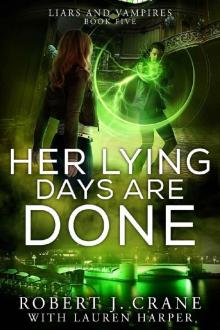 Her Lying Days Are Done
Her Lying Days Are Done![Crane, R [ Southern Watch 03] Corrupted Read online](http://i1.bookreadfree.com/i1/04/02/crane_r__southern_watch_03_corrupted_preview.jpg) Crane, R [ Southern Watch 03] Corrupted
Crane, R [ Southern Watch 03] Corrupted Tormented
Tormented Badder (Out of the Box Book 16)
Badder (Out of the Box Book 16) 06 - Vengeful
06 - Vengeful The World Beneath (The Mira Brand Adventures Book 1)
The World Beneath (The Mira Brand Adventures Book 1) Heretic (The Sanctuary Series Book 7)
Heretic (The Sanctuary Series Book 7) Omega tgitb-5
Omega tgitb-5 The Tide of Ages (The Mira Brand Adventures Book 2)
The Tide of Ages (The Mira Brand Adventures Book 2)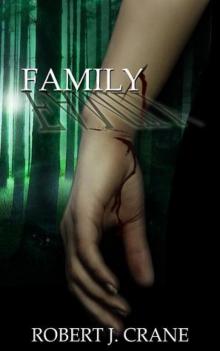 Family tgitb-4
Family tgitb-4 The Southern Watch Series, Books 1-3: Called, Depths and Corrupted
The Southern Watch Series, Books 1-3: Called, Depths and Corrupted Masks (Out of the Box Book 9)
Masks (Out of the Box Book 9) Crusader: The Sanctuary Series, Volume Four
Crusader: The Sanctuary Series, Volume Four Out of the Box 7 - Sea Change
Out of the Box 7 - Sea Change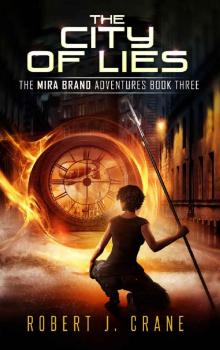 The City of Lies
The City of Lies Warlord
Warlord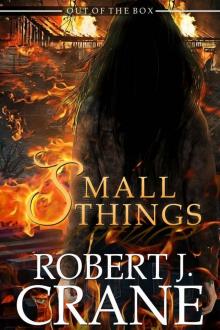 Small Things (Out of the Box Book 14)
Small Things (Out of the Box Book 14) The Sanctuary Series: Volume 03 - Champion
The Sanctuary Series: Volume 03 - Champion A Haven in Ash (A Sanctuary Series) (Ashes of Luukessia Book 1)
A Haven in Ash (A Sanctuary Series) (Ashes of Luukessia Book 1) Limitless
Limitless Badder
Badder Legend
Legend The Girl in the Box 03 - Soulless
The Girl in the Box 03 - Soulless Grounded (Out of the Box Book 4)
Grounded (Out of the Box Book 4) In the Wind (Out of the Box Book 2)
In the Wind (Out of the Box Book 2)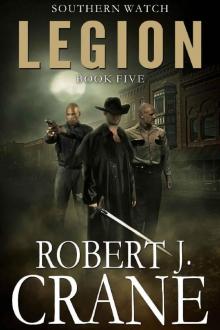 Legion (Southern Watch Book 5)
Legion (Southern Watch Book 5) Master (Book 5)
Master (Book 5) Crusader s-4
Crusader s-4 Starling (Southern Watch Book 6)
Starling (Southern Watch Book 6) Sanctuary 5.5 - Fated in Darkness
Sanctuary 5.5 - Fated in Darkness